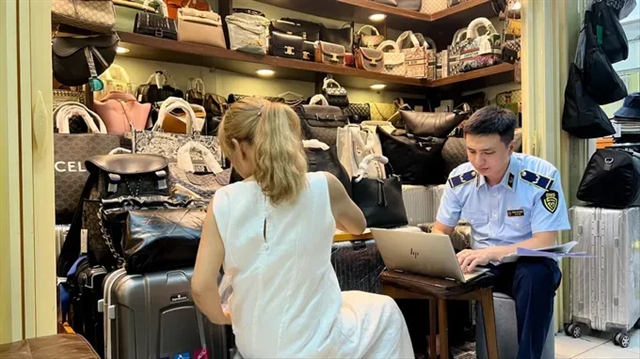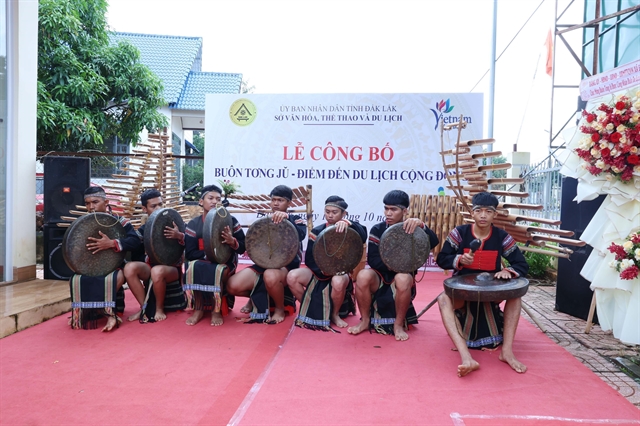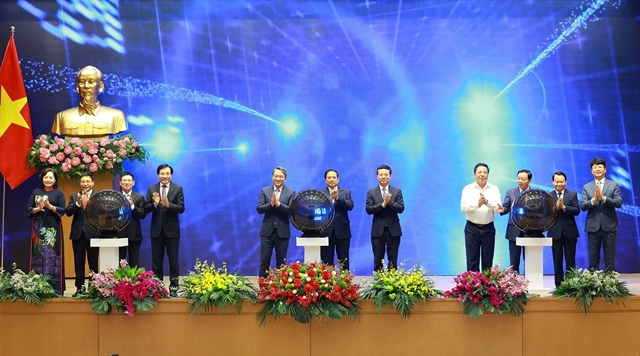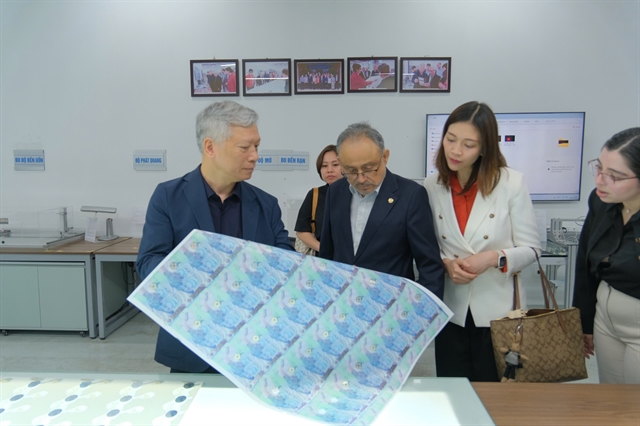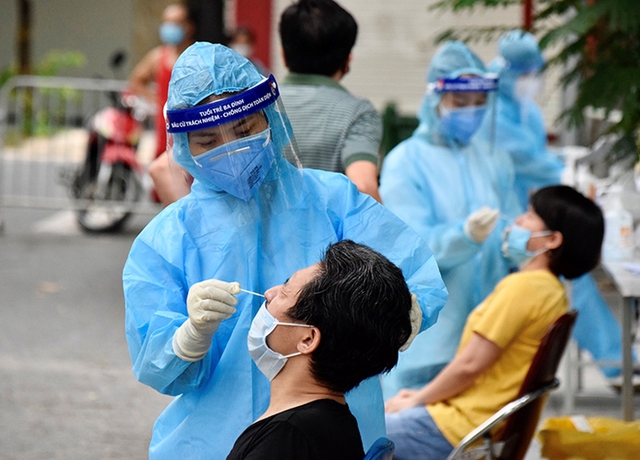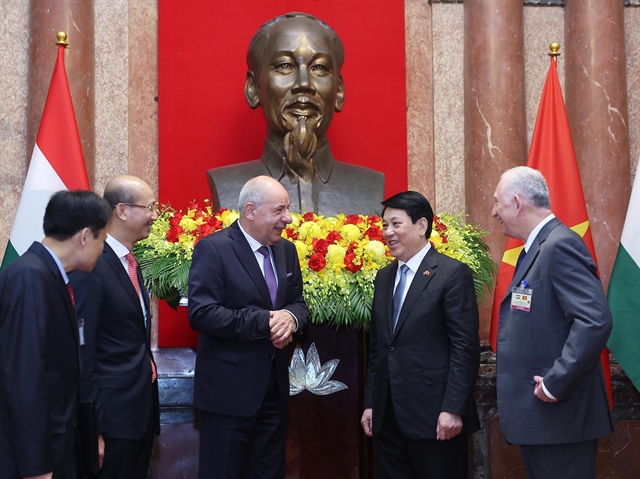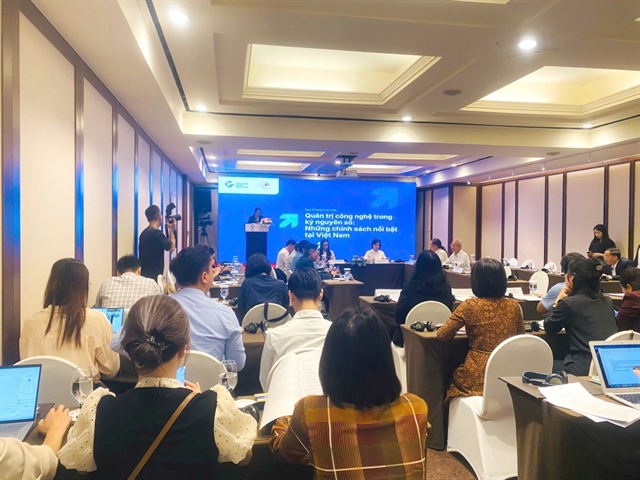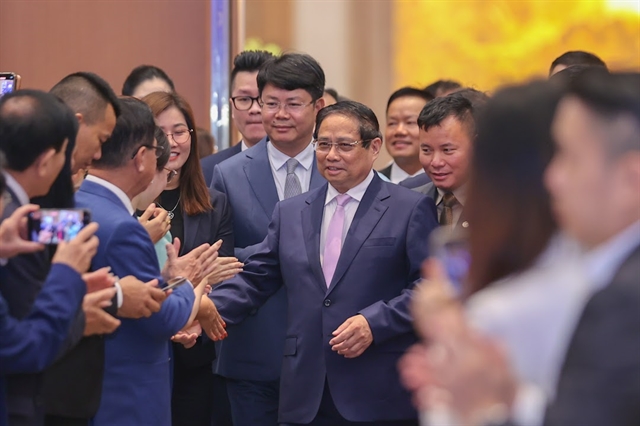 Economy
Economy

Việt Nam-Cuba investment and trade ties have great untapped potential, a conference heard in HCM City on February.
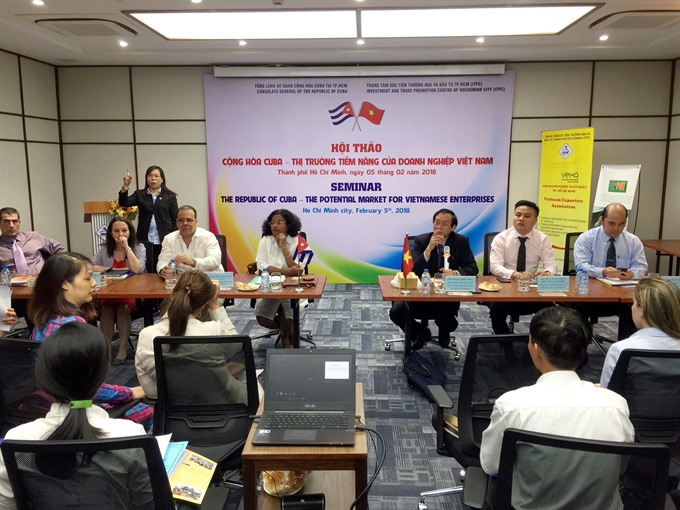 |
| Speakers take questions from business executives attending a conference in HCM City on February 5 on the Cuban market. — VNS Photo |
HCM CITY — Việt Nam-Cuba investment and trade ties have great untapped potential, a conference heard in HCM City on Monday.
Speaking at the conference, titled "Cuba – a potential market for Vietnamese enterprises", the country’s consul general in HCM City, Indira López Arguelles, said her government was soliciting foreign investment, especially in the Mariel Economic Development Zone, which offers good conditions for Vietnamese firms to invest.
Tourism, renewable energy, bio-technology, light industry, food, property, agriculture, and infrastructure were among the sectors in which it seeks foreign investment, she said.
Phạm Thiết Hòa, director of the Investment and Trade Promotion Centre of HCM City, said: “The Cuban market offers great potential for Vietnamese businesses in sectors like tourism, agriculture, telecommunications, consumer goods, footwear, and garments and textiles, areas in which Việt Nam has strength.
Cuban firms are strong in the pharmaceutical, training, medical, and construction sectors, and can enhance co-operation with their Vietnamese counterparts in these fields, he said.
Trade between Việt Nam and Cuba has increased significantly in recent years, but remains modest compared with the potential, he said.
Of the $250 million trade in 2016, Việt Nam’s exports to Cuba accounted for $240 million, he said.
Trần Ngọc Thuận, deputy general director of Thái Bình Investment Trading Corp, which has 20 years’ experience in the Cuban market, said Cuba’s imports from Việt Nam accounted for a very small portion of its total imports, and there was still a lot of scope for Vietnamese firms to promote exports to the country, he said.
Cuba had to import 60-65 per cent of its food needs while Vietnamese firms were strong in the sector, he said.
Businesses from the two sides can co-operate in agriculture to serve the Cuban market and also export to Latin American countries, the conference heard.
With Cuba seeking to boost domestic production to gradually reduce imports, investors should think of the long term by investing in production there instead of focusing just on trading, delegates said.
They said investment and trade in each other’s countries remains modest due to the limited market information and investment policies of enterprises.
Besides, difficulties in making payments and the use of dual currencies and foreign exchange rates are among other obstacles to trade, according to Arguelles.
Việt Nam and Cuba are negotiating a free trade agreement to facilitate trade.
Some Vietnamese firms have invested in Cuba and she hoped more would do so.
Hòa said the ITPC would organise a visit by a business delegation to Cuba next month to enable Vietnamese firms to understand more about that market and seek partners.
Việt Nam’s main export items to Cuba are rice, coffee, chemicals, ceramics, and machinery and parts. It imports vaccines and pharmaceutical products. — VNS

